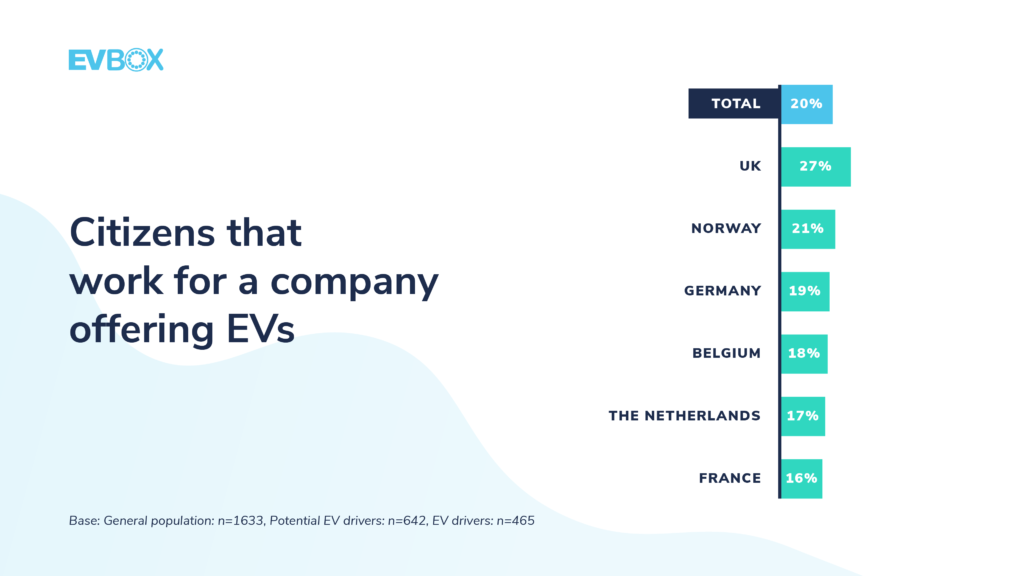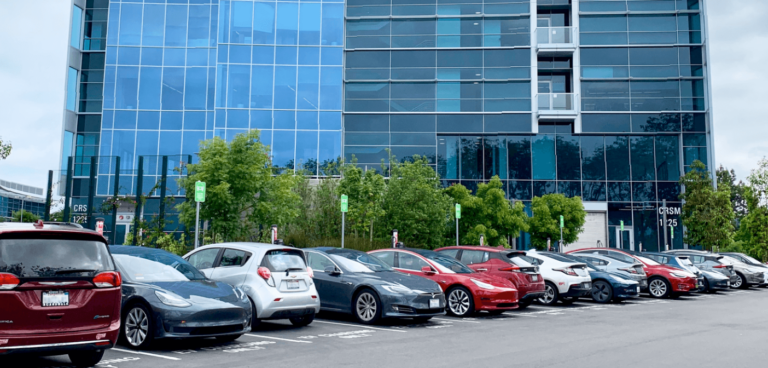EV chargepoints at workplaces across Europe will be key in drivers switching to zero-emission vehicles, according to a new market research report.
Findings from EVBox Mobility Monitor highlighted that two in three European EV drivers wanted to see more chargepoints at their place of work.
The study also found that drivers are looking to their employers to provide electric company cars as well as charging infrastructure.
EV drivers reported that there are only enough places to charge at work 29% of the time and 20% said they didn’t have access to workplace charging at all.
Furthermore, 20% of EV drivers said they would also like to see more fast chargers at their workplace in the future.
The report also looked at the geographical split across European countries. The Netherlands leads the way with EV charging points at the workplace with over half (56%).
the UK topped the table for companies that offer EVs in their business plan (27%), while France and Belgium were bottom of the list with 16% and 18%, respectively.

Kristof Vereenooghe, president and CEO of EVBox Group, said: “This research confirms that there is pressure on businesses to adopt electric mobility for the benefit of employees, society, and our planet.
“Businesses have the chance to lead by example by electrifying their fleets and encouraging their employees to use electric vehicles.”
The report also stressed that new national policies will encourage the electrification of company cars and fleets, such as governments across Europe starting to ban new petrol and diesel cars.
This will be the case in the UK from 2030. Belgium is also planning a ban on new internal combustion engine company cars from 2026 and France will ban sales of petrol and diesel cars by 2040.
The report added that incentives for corporate cars are expected to play a crucial role in this transition.
According to EVBox, in many European countries, companies and public entities can apply for grants covering certain percentages of costs associated with installing charging stations.
It quoted a Berlin-based example where companies are able to apply for funding covering up to €2,500 (£2,195) per AC charging station and up to €30,000 (£26,000) per DC fast charging station.
Vereenooghe added: “It’s encouraging to see that there are incentives in many countries for both EV drivers and businesses helping to make sustainable transportation a reality across the continent but there is clearly much more to be done.”





